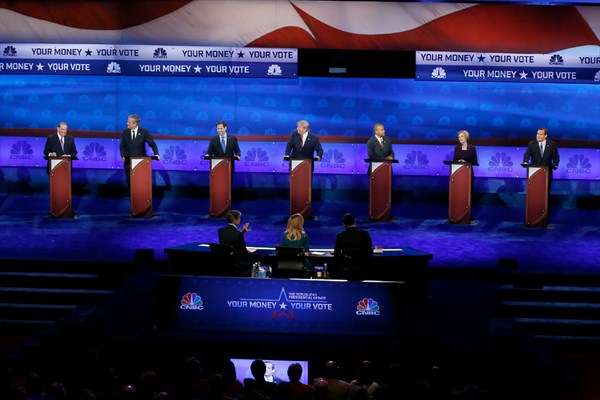With the U.S. presidential election only about a year away, no candidate for either party has laid out a comprehensive national security strategy or even a broad philosophy of America’s role in the world and the purpose of U.S. power. To the extent that national security has been raised at all, the presidential hopefuls are clamoring to appear the toughest, whether against the self-declared Islamic State, Iran or Russia, and to offer unqualified support for Israel and its prime minister, Benjamin Netanyahu. The candidates have talked of reviving America’s influence in the Middle East and restraining Russia, but they haven’t explained how they would do so other than through “resolve” and “leadership.”
Platitudes and quips are inevitable during the charged political atmosphere of a presidential race, but they are not enough. To make an informed decision in the voting booth, Americans need to know more about how the candidates would deal with the threats facing America. In particular, the public needs to know how the candidates would address transnational extremism and the conditions that give rise to it, and especially how they would use military force in that effort. Since candidates may not offer such a big-picture perspective on their own, security experts and the media must push them to do so. Debates leading up to party conventions and between the two candidates who emerge from the conventions would be an excellent venue for this. Debate moderators should ask each candidate fundamental questions about America’s struggle with transnational extremism and, if they resist providing a clear answer, compel them to do so.
The first question that debate moderators should ask candidates is when, why and how they would use the U.S. military against extremism. From the end of the Cold War until the Sept. 11 attacks, the answers from Republican candidates probably would have reflected the Weinberger or Powell principles: The United States should only use military force when doing so would attain clear objectives backed by the public, and when the expectation was that force could be used for a short period of time in an overwhelming manner. Democrats might have added that the U.S. military should also participate in humanitarian interventions and multinational peacekeeping under some conditions. Since the end of a direct American role in counterinsurgency in Iraq and Afghanistan, there has been a shift toward a “light footprint” application of U.S. military power based on support for partner security forces, standoff strikes using manned and unmanned aircraft or missiles, and the use of Special Operations Forces. Yet this shows little sign of defeating extremists outright.

